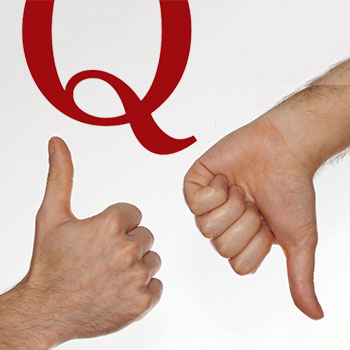By Judith E. Glaser | qualtrics.com
Published: July 2, 2014
 Why do negative comments and conversations stick with us so much longer than positive ones?
Why do negative comments and conversations stick with us so much longer than positive ones?
A critique from a boss, a disagreement with a colleague, or a fight with a friend – the sting from any of these can make you forget a month’s worth of praise or accord. If you’ve ever been called lazy, careless or a disappointment, then you’re likely to remember and internalize it. It’s somehow easier to forget, or discount, all the times people have said you’re talented or conscientious or that you make them proud.
Chemistry plays a big role in this phenomenon. When we face criticism, rejection or fear, when we feel marginalized or minimized, our bodies produce higher levels of cortisol, a hormone that shuts down the thinking center of our brains and activates conflict aversion and protection behaviors. We become more reactive and sensitive. We often perceive even greater judgment and negativity than actually exists. And these effects can last for 26 hours or more, imprinting the interaction on our memories and magnifying the impact it has on our future behavior. Cortisol functions like a sustained release tablet – the more we ruminate about our fear, the longer the impact.
Recently, my consultancy, The CreatingWE Institute, partnered with Qualtrics to analyze the frequency of negative versus positive interactions in today’s workplaces. The results were published in Harvard Business Review. You can read the full article here:
http://blogs.hbr.org/2014/06/the-neurochemistry-of-positive-conversations/








